一说到雅思大作文,大家最怕的题目类型就是抽象类话题。因为这些题目往往是探讨一些虚无缥缈的东西,让我们有一种深深的无力感,感觉自己无从下笔。今天的秘籍,就是教大家攻克抽象类话题的大作文。
什么是“抽象类话题”
☆ 种:探讨人生哲学
此类题目不像我们熟悉的教育、科技、媒体等话题,它们不涉及具体问题。
【真题】
Happiness is considered very important in life. Why is it difficult to define? What factors are important in achieving happiness?(剑4 Test2)
☆ 第二种:暗藏玄机
看似熟悉的话题,实则夹杂着至少一个无法进行量化的抽象概念。
【真题】
Some people believe the purpose of education is to prepare individuals to be useful to the society, while others say the purpose is to help individuals to achieve ambitions. Discuss both views and give your own opinion. (2017/10/14 & 2014/04/12真题)
抽象类话题难在哪里?
◇ 首先,思路拓展难
考场上碰到这些话题,大多考生就开始泛泛地聊人生哲学,狂煲心灵鸡汤。所以在Task Response(写作任务回应)这块得分不会高,因为考生没有充分展开论证,最直观的体现就是字数不够。
◇ 其次,英文表达难
在聊人生的过程中,Lexical Resource(词汇丰富程度)的问题会随之而来,因为我们基本没有储备过可以表达哲学思想的词汇,而背过的具象话题词汇空无用武之地。
思路拓展的妙招
► 解决思路拓展招——缩小范围
“人生哲学”范围太广,那我们就先缩小范围。作为一名学生,当前的人生大多由“学习”和“生活”组成。同理,上班族就是“工作”和“生活”。因此,我们可以先将话题范围缩小到日常的——学习、工作和生活。
【例题讲解】
Happiness is considered very important in life. Why is it difficult to define? What factors are important in achieving happiness?
这一题我们可以把“幸福这个大范围,具体到“学习”、“工作”和“生活”三个小范围,再给它们下定义。
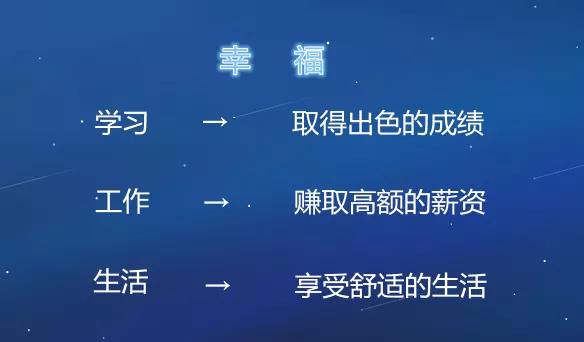
► 解决思路拓展的第二招——找下义词
上义词是对事物的概括性、抽象性说明;下义词是事物的具体表现形式。比如color是上义词,它的下义词是yellow / red / blue / green / purple / white ......
由“学习”、“工作”和“生活”三方面进一步拓展思路,则可以从找对应的下义词着手。
【例题讲解——下义词“学习”】
Some people believe the purpose of education is to prepare individuals to be useful to the society, while others say the purpose is to help individuals to achieve ambitions.
题目在谈论学习时,有一个下义词——学习目标,那我们就可以把“学习目标”按照不同的人生阶段进行划分:

因此满足个人的“ambitions”和“be useful to the society”可以作为教育的目的共同存在。而为了实现这些目标,我们需要有“良好的学习态度”和“有力的学习能力”。
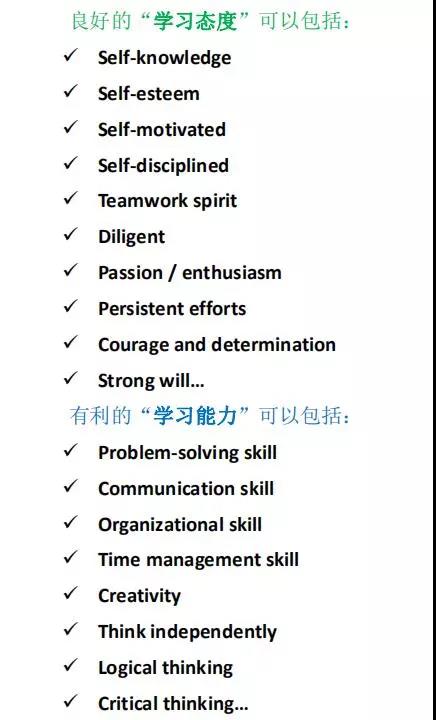
【例题讲解——下义词“工作”】
Some people think job satisfaction is more important than job security, while others believe that having a permanent job is better than enjoying the job. Discuss both views and give your own opinion.
我们可以设想在求职过程中,我们可能会关注工作内容、工作要求、升职机会、福利以及环境等。
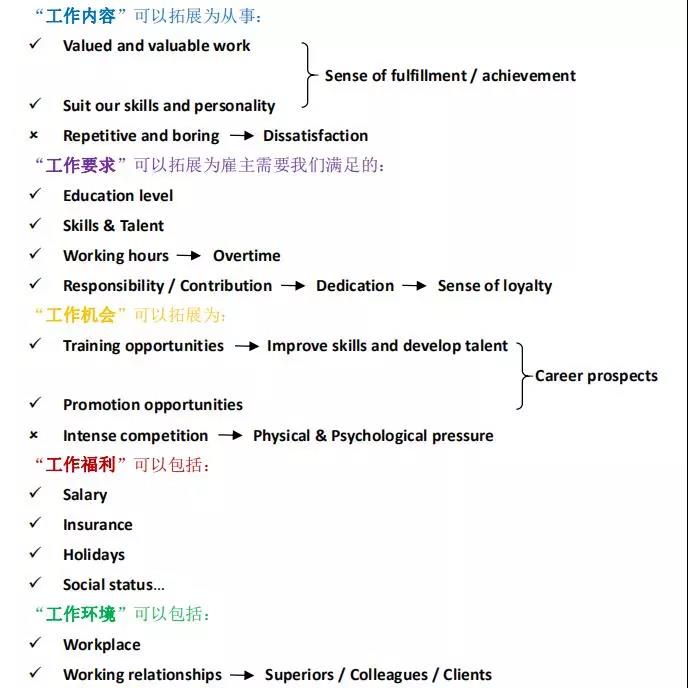
【例题讲解——下义词“生活”】
People nowadays change careers and place of residence very often. Is it a positive or negative development?
变更生活环境,可以具体为变换周围的“人造环境”和“自然环境”。
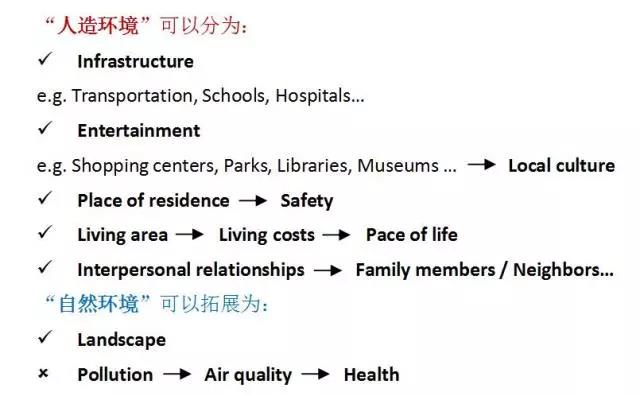
英文表达的模板
回到刚刚Happiness这一题:能给我们带来幸福的因素有很多,“获得幸福因素”的下义词包括“和谐的人际关系”、“健康的身体”、“谋生的技能”和“舒适的生活环境”等。
【表达模板】
1. 上义词 + such as / including + 下义词 1,2,3…
eg: Factors(上义词)such as loving relationships(下义词1), good health(下义词2), the skills to earn a living(下义词3)and a peaceful environment(下义词4)all contribute to our happiness.
2. 下义词1 + 下义词2 + 下义词3… + and上义词 like those / of these kinds
eg: Loving relationships(下义词1), good health(下义词2), the skills to earn a living(下义词3), a peaceful environment(下义词4)and factors(上义词) like those / of these kinds all contribute to our happiness.
3. 下义词1(强调内容) + and other kinds of 上义词 + such as + 下义词2 + 下义词3…
eg: Good health(下义词1)and other kinds of factors(上义词)such as loving relationships(下义词2), the skills to earn a living(下义词3) and a peaceful environment(下义词4)all contribute to our happiness.
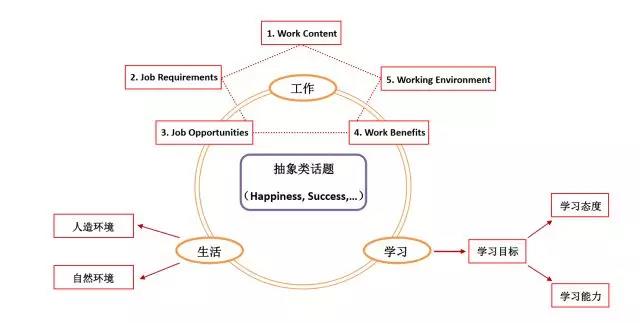
0元领取剑桥雅思系列真题解析、托福TPO、SAT考试真题,更多独家资料免费领取。
